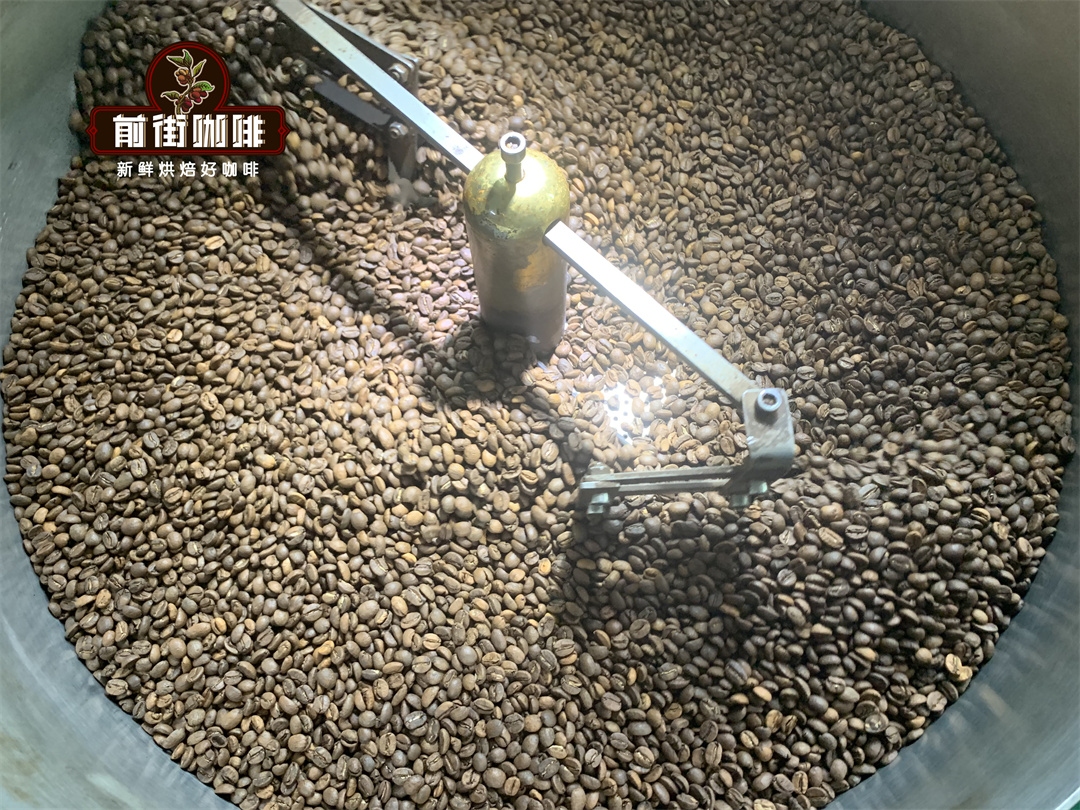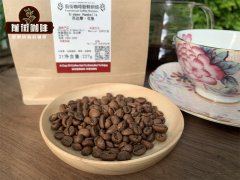What is the baking curve? what is the effect of the roasting process on the sour and bitter of coffee?
Roasting is one of the basic stages of processing coffee beans. It not only makes raw coffee edible, but also gives each coffee mixture its own aroma and sensory characteristics. During the roasting process, heating the coffee beans will cause transformation, resulting in highly complex ingredients and aromas.
Effect of roasting process on coffee
The roasting process determines the final taste and aroma of coffee, which shifts between two extreme tipping points.
Depending on the degree of roasting, using the same coffee mixture, you can produce coffee with a slightly sour herbaceous taste, rather than soft, velvety coffee, or with a light fruity flavor rather than a strong bitter taste.
The darker the coffee is, the less sour it is and the more bitter it is. Deep-roasted coffee beans are more suitable for espresso, such as lattes. Most of the bean cups of Qianjie boutique coffee are roasted shallowly.
The quality and feel of different coffees can be affected in many ways, and the baking curve is one of them.

What is the baking curve?
The initial temperature is higher or quieter, baking slowly to retain some aroma or quickly enhance the richness of the coffee.. What is the baking curve in coffee roasting?
The baking curve is a control system that can manage the temperature and time of the baking process. They vary depending on the type of coffee being processed and how the coffee is eventually extracted.
Coffee is a natural product with many kinds, different qualities or sources. When heated by baking, it will react differently according to its own specific sensory and structural characteristics as well as water content.
Robusta coffee requires more energy and longer baking time, even if it is not advisable to roast for a long time, because it is brewing coffee rather than roasting coffee.
For filtered coffee, siphon coffee, Philharmonic pressed coffee and French coffee press, lightly roasted coffee is necessary, which means shorter roasting time to give coffee beans a light aroma, rich acidity and low specific gravity, it is very suitable for this type of extraction.
For Moka and Espresso, the deeper roasting is to give the coffee beans a fuller pure thickness and slightly stronger aroma, showing a hue, depending on the type of coffee beans. Its target customers (for example, in northern Italy, they are more accustomed to light aromatic coffee with pleasant acidity, while in the south they are more accustomed to bitter, full-bodied and full-bodied coffee).
For Ibrik (Turkish coffee) or coffee that usually requires another extraction rate (thus having a higher specific gravity, rich aroma and full-bodied aroma), light roasting is always preferred, but at a very slow time, this will allow different substances to form more soluble substances.
Roasting and mixing coffee beans is not only a pure technical skill, but also a pure art form.
Important Notice :
前街咖啡 FrontStreet Coffee has moved to new addredd:
FrontStreet Coffee Address: 315,Donghua East Road,GuangZhou
Tel:020 38364473
- Prev

How to make espresso a little more greasy? is cappuccino and latte espresso?
Espresso is the first choice for many coffee lovers. The taste is mellow and the smoothness of milk gives people a good imagination. Cappuccino and latte are required espresso in cafes. Italian cappuccino first prepares excellent espresso and then continues to brew milk carefully. What coffee beans can be made into the perfect cappuccino? Front Street Coffee
- Next

The best coffee beans in the world. Kenyan coffee or Manning?
The world's best Arabica coffee beans are ranked in no particular order by country, because the biggest factor is personal preference. For example, some people may prefer the wine and fruity acidity of Kenyan coffee to the classic balance of Colombian coffee, others may not. Therefore, we will continue to deny that there are subjective factors, including the most popular coffee, all of which
Related
- What brand of black coffee is the most authentic and delicious? what are the characteristics of the flavor of the authentic Rose Summer Black Coffee?
- Introduction to the principle and characteristics of the correct use of mocha pot A detailed course of mocha pot brewing coffee is described in five steps.
- Which is better, decaf or regular coffee? how is decaf made?
- How much is a bag of four cat coffee?
- How about four Cat Coffee or Nestle Coffee? why is it a cheap scam?
- Which is better, Yunnan four Cats Coffee or Nestle Coffee? How about cat coffee? is it a fake scam? why is it so cheap?
- How about Cat Coffee? what grade is a hoax? which instant coffee tastes better, four Cat Coffee, Nestle Coffee or G7 coffee?
- Process flow chart of coffee making-Starbucks coffee making process what coffee tastes good at Starbucks
- The top ten best coffee beans in the world Rose summer coffee or Tanzanian coffee tastes good
- Yunnan four cat coffee is good to drink?_four cat coffee is a big brand? four cat blue mountain coffee is fake?

